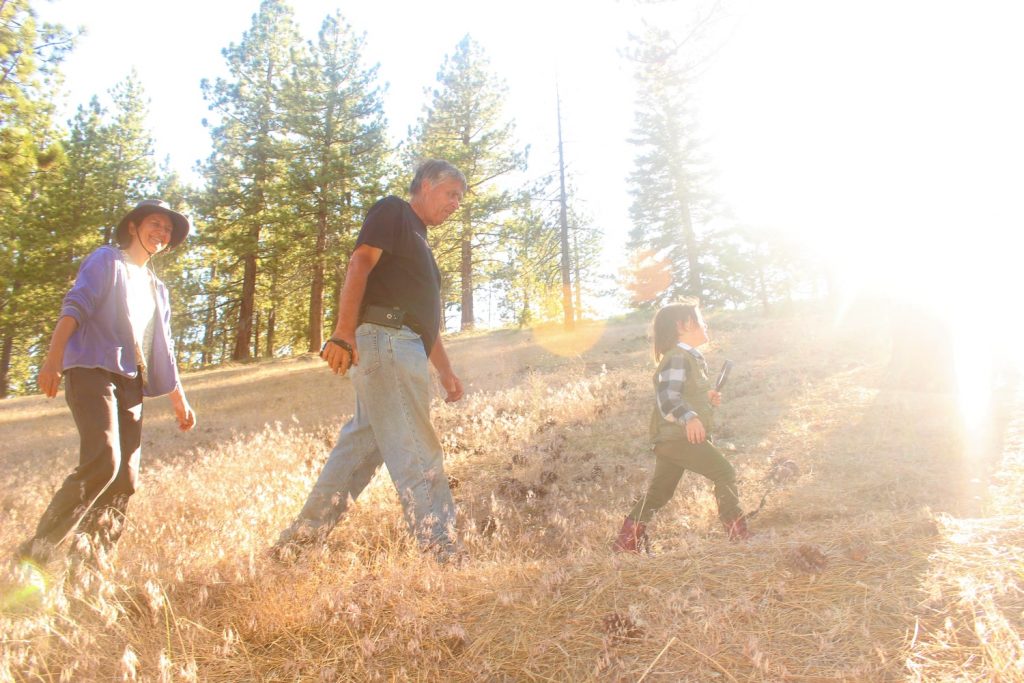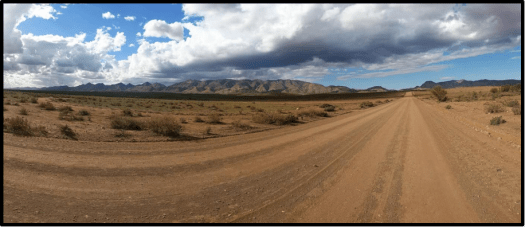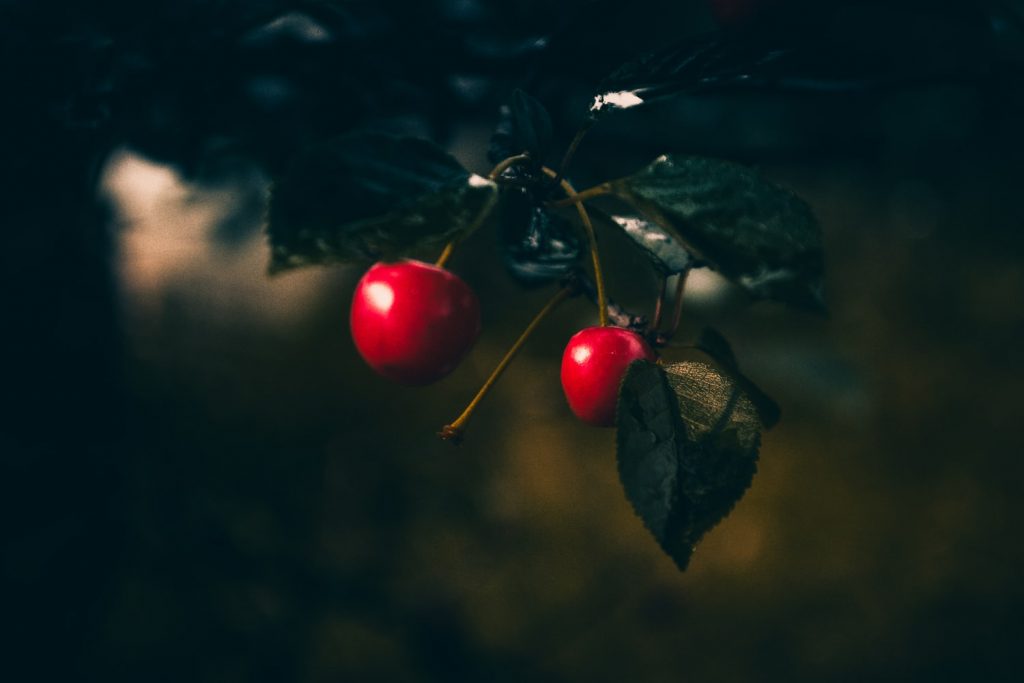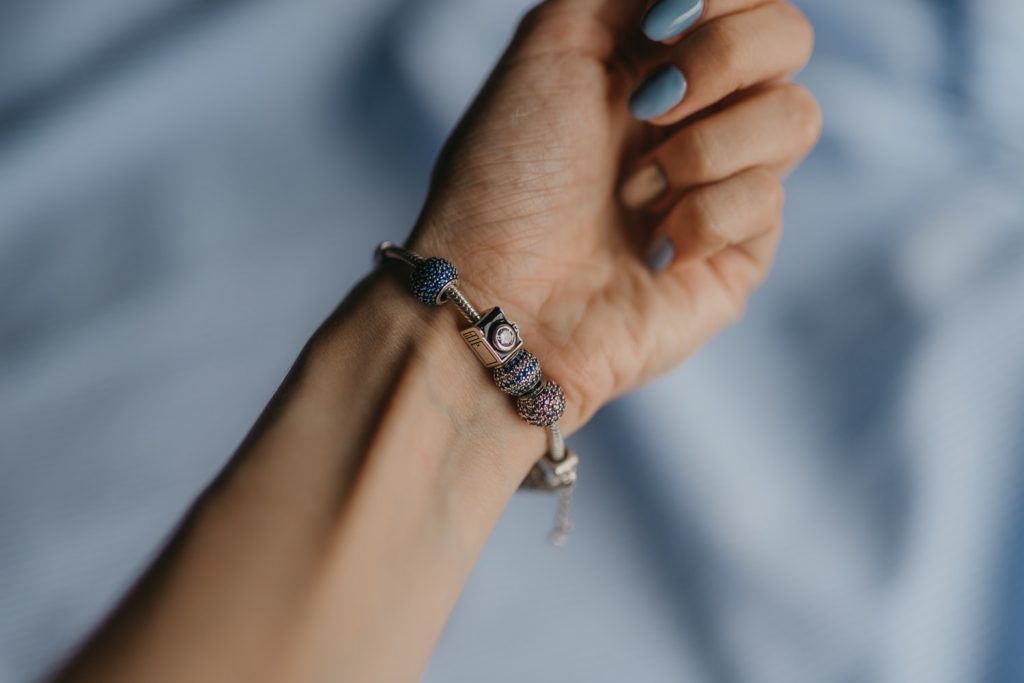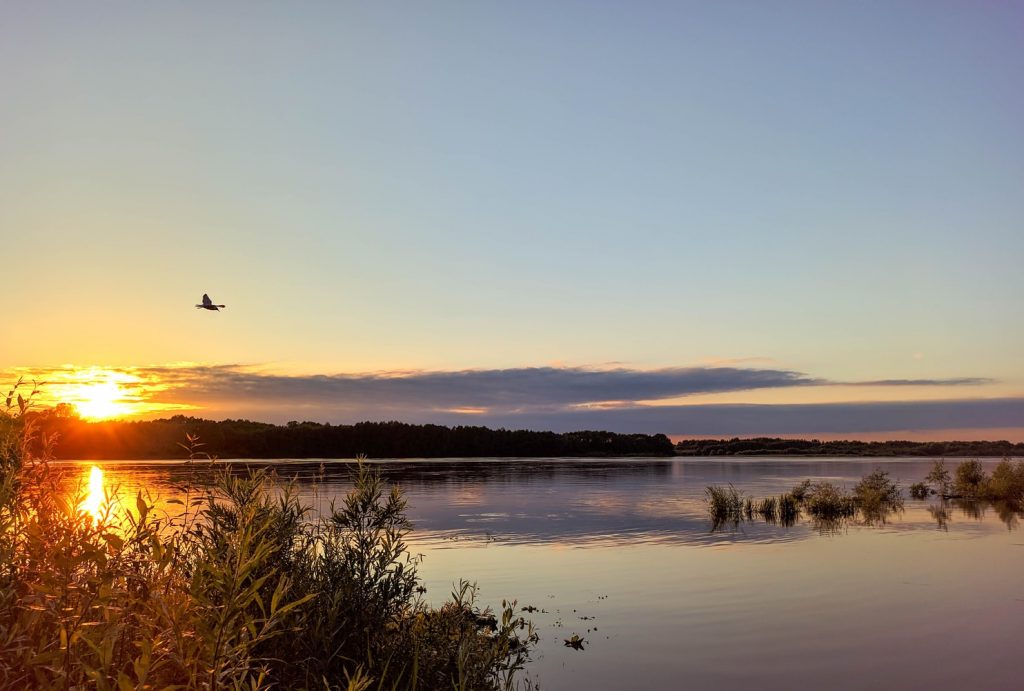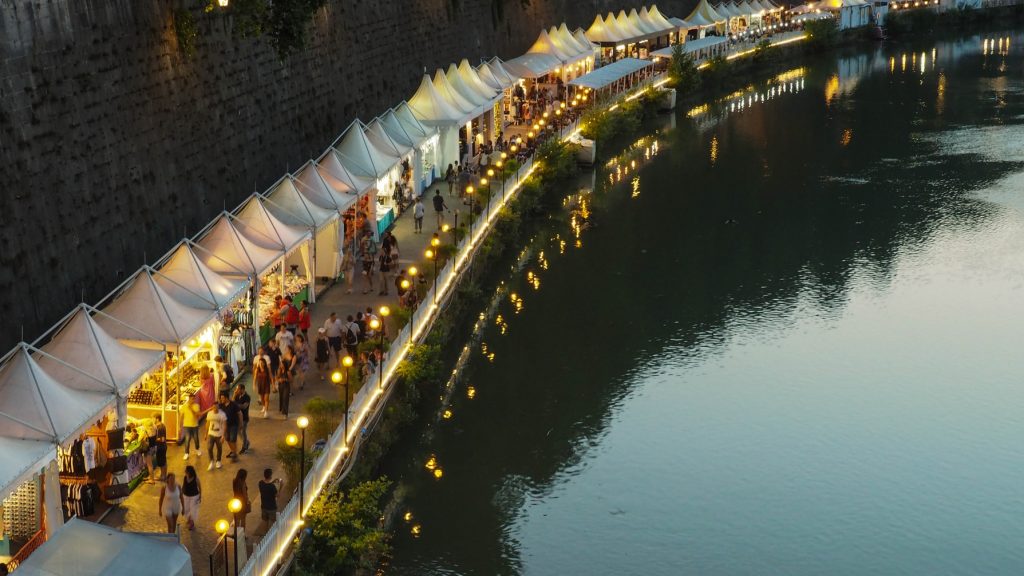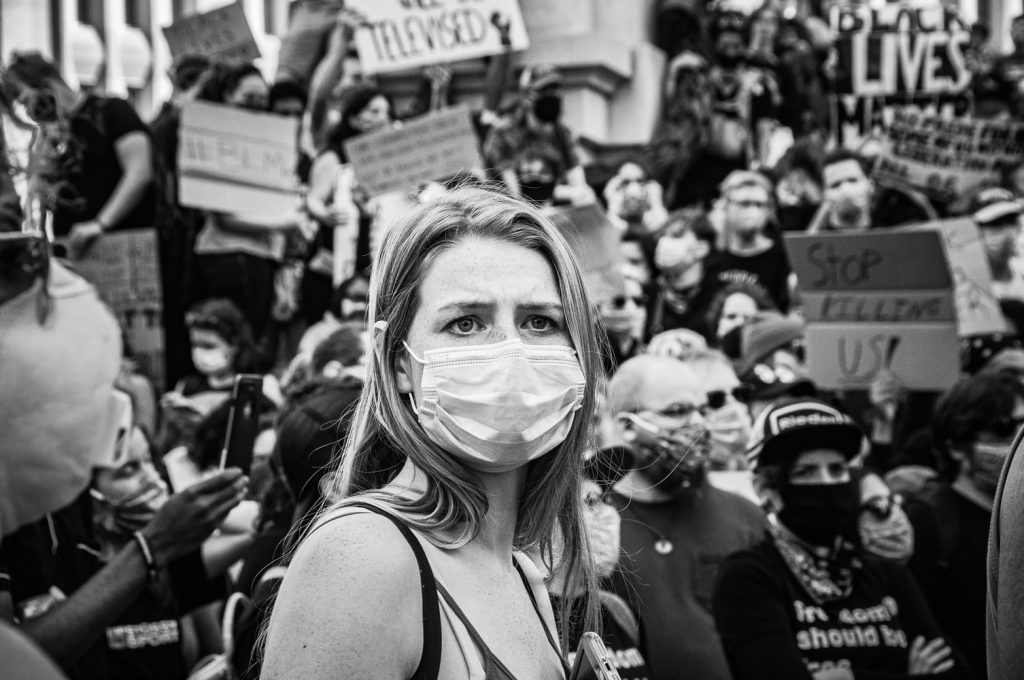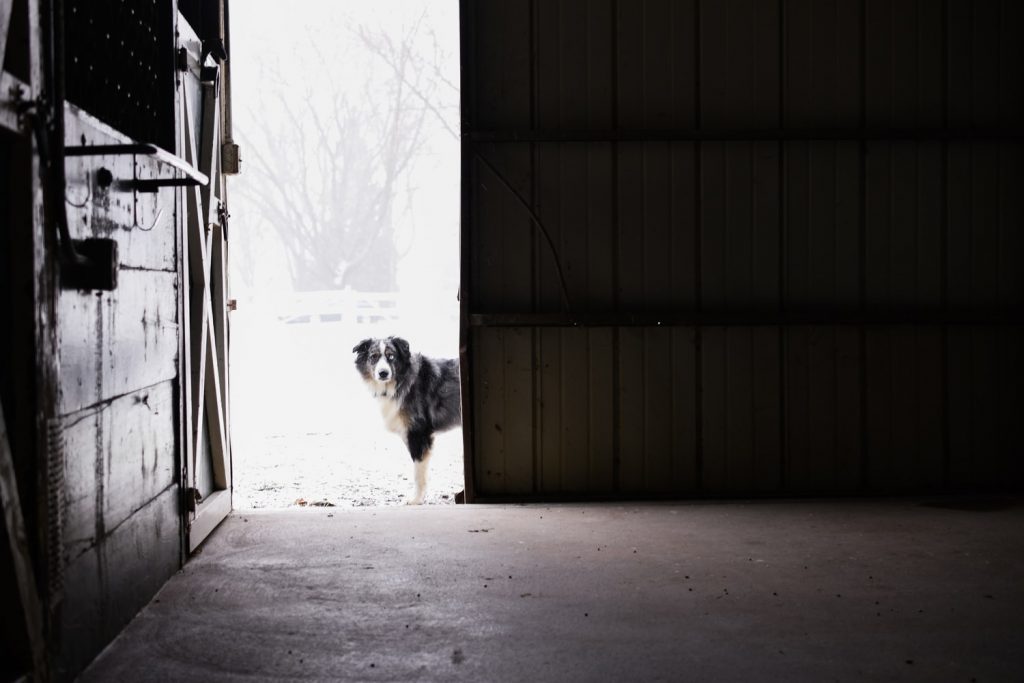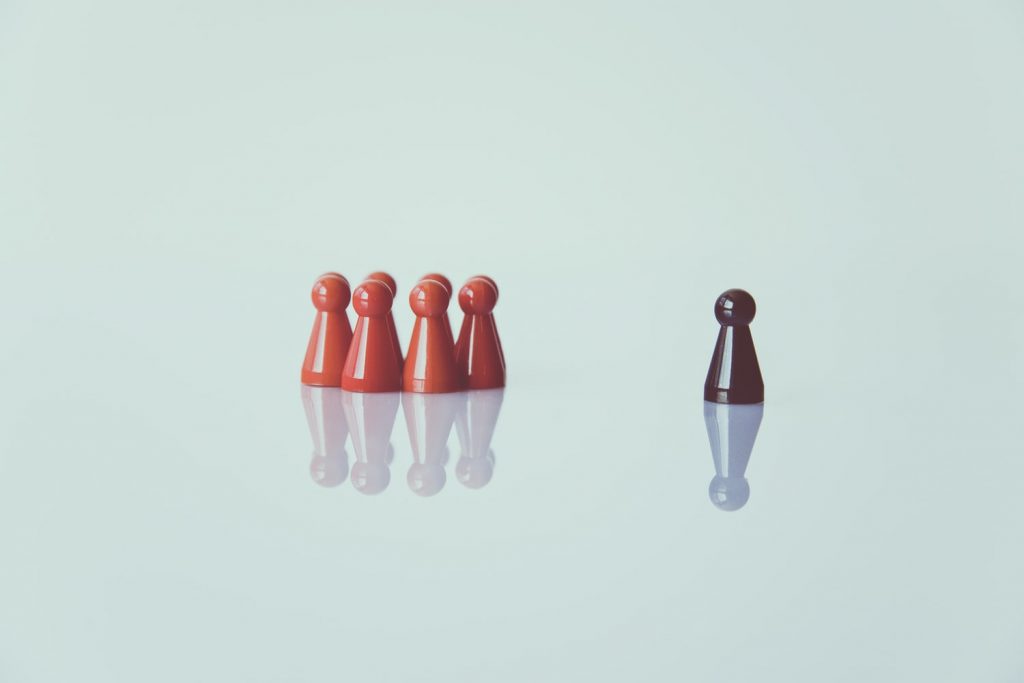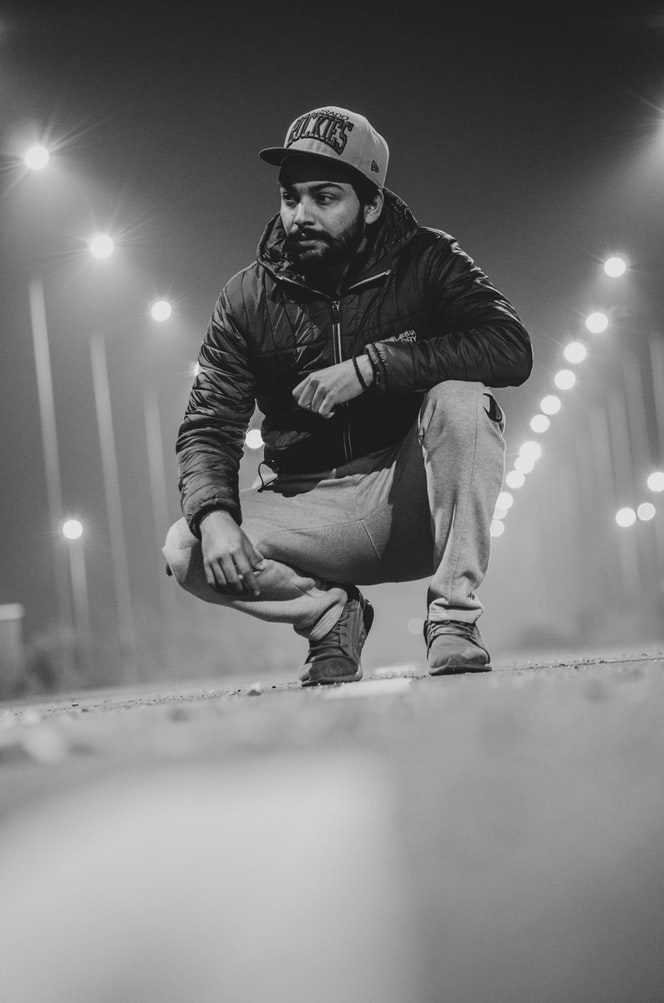
Tom waited impatiently at the metal doors for the countdown to reach zero. The lights had all been turned down in anticipation, as if for fireworks, or for a comet to pass, and the numbers above the doors glowed red. From here, Tom and his roommate had listened to the riots on the streets below. They had opened up the curtains to watch through the large clean windows the first flecks of ash fall from air as the bushfires began. They had looked on with increasing misery as the ash piled up like snow on the disused cars and the broken down brick walls, and the hours turned to days and then into months. Tom’s heart beat against his ribcage with increasing vigour, but he wasn’t scared, at least he didn’t think he was. For the first time in a very long time, they were going outside.
Tom kicked the door.
‘Hey man,” his roommate began, ‘are you okay?’
Tom could see the blurry reflection of his roommate behind him. He could also hear him sucking in air through his mask noisily.
‘Yeah Wonder Boy, just mind your own business, okay?’
If the door didn’t open up soon, Tom thought he would throttle his roommate. Not that he could. Wonder Boy would definitely kick his ass again.
Hurry up.
– One minute to go –
Wonder Boy had arrived the week before the fifth lockdown and things had started out well enough. Tom remembered how they had played board games, watched re-runs of soccer matches, talked all night about anything and everything.
Wonder Boy would spend hours telling Tom about all the trophies he had won, back when there were trophies to win. He described in vivid detail the glamorous parties he had gone to, the nights he had spent with beautiful women.
It hadn’t bothered Tom that he had never won any trophies; he had never been on any dates either. He used to imagine it was him in the stories, winning those trophies, going on dates, having parties thrown in his honour. Not spending what should have been his high school years looking after his mother, cleaning up the puke from the hallway, hiding his money in the oven, or listening to his mother retching into the toilet in the middle of the night. The stories were a welcome distraction from the memories of repeatedly collecting his mother from rehab, and mere weeks later, returning her again like an unwanted Christmas pet.
In the end it wasn’t the booze that had killed her, she drowned.
In the last few weeks, the weeks following the announcement that they would be let outside, things had begun to go wrong. The stories had become different somehow. They had grown stale, but even more than that, they had become offensive: a never-ending list of things that Tom never had, and never would have. At least Wonder Boy had had glory days. What had Tom had?
Two weeks prior there had been an argument over what to watch on television that had descended, as many drunken arguments do, into something personal. At its conclusion, Wonder Boy had wanted an explanation of why Tom ‘had been such a dick lately’ and Tom had been happy to tell him. The problem, Tom had said, badly slurring, was not the TV, not the stories, it was that Wonder Boy snored so fucking noisily, breathed noisily, ate noisily, showered noisily, exercised noisily, masturbated noisily, he lived too noisily. There was not enough of the grey room for both of them… Wonder Boy needed to go.
Tom had tried to hit Wonder Boy with an empty bottle. Had he meant to kill him? No, just to concuss him a little bit. To have just a few small hours of peace and quiet. But it was Tom that went sprawling over a footstool, shattering the glass bottle on the floor and slicing a hole in his elbow that bled sticky red wine on the carpet.
Tom kicked the door again.
On the security monitor, Anne and her roommate from 6C appeared in the corridor, returning to the room opposite. Her hair was windswept and covered in ash like confetti. She was beautiful in a way that rewired things in Tom’s brain and stopped him from doing simple things such as talking.
‘Hey man, look it’s the girls,’ Wonder Boy said, abruptly interrupting Tom’s daydream. He reached over Tom to bang on the door and smacked against Toms shoulder repeatedly in the process.
The two girls smiled at the camera and waved before quickly disappearing into their room.
– BEEP –
The locks on either side of the door shot back into the walls and the door sprang open automatically, sending a gust of air and residual ash into the clean room.
‘Go-Go-Go!’ Wonder Boy shouted excitedly, shoving Tom out into the corridor.
Tom tripped and staggered forward, falling in a heap against the door of 6C. Tom could feel the girls watching on their monitor.
‘You fucking asshole,’ he said, ‘what was that for?’
‘Sorry man,’ Wonder Boy replied with a shrug.
Tom pushed away Wonder Boy’s attempts to help him up and got to his feet. It was the second time that Wonder Boy had laid him out in as many weeks and Tom could feel his face and his fists throbbing with embarrassment and anger.
If it had been the other way around Tom wouldn’t have shoved Wonder Boy, he would’ve warned him that the countdown was nearly up, he would’ve given him a subtle poke that said ‘hey buddy, let’s go.’ He wouldn’t have made his roommate look like an asshole was the point. Next time it was Wonder Boys turn. That fucker was in for it next time, yes sir.
Tom walked through the lobby and swung open the heavy doors that led outside, rattling the thick glass panels set into the frames.
A strong wind sent hot flecks of ash and dust into his face that, despite his goggles and mask, made Tom turn away from their approach. Only a bland white light now penetrated through the veil of swirling ash and smoke and the image of desolation that greeted him was more painful than he had imagined it to be.
‘Hey man,’ Wonder Boy called. ‘Sorry I pushed you.’
‘What!?’ Tom could barely hear him in the gusting wind.
‘I said I am sorry I pushed you!’
Tom wished he would stop being so fucking nice. But then again, he did just apologise. And perhaps a little shove was better than missing the exit window because he had zoned out.
That would have looked even worse.
Right?
High above the ash clouds two water bombers zoomed overhead, returning from dousing the endless bush fires, to refill and refuel. Later that afternoon one of the bombers would hit a tall red brick tower in the eastern suburbs that had been hiding in the ash storm all these months, waiting to kill everyone on board.
The HyperMart was Tom’s destination, mostly because it was the only building, shop, or anything else still open now. It was an old-fashioned shopping mall with all but one of the entrances blocked and all of the windows shuttered against the ash storm, which became worse as they drew near.
At the entryway, Tom placed his Vax Cert and ID face down on the scanners and the machine vomited out a little slip of paper with the words ENTER printed on it in blurry red lettering.
‘What do we need to get?’ Wonder Boy asked as he emerged from the doorway.
He had removed his mask and gloves and smiled at Tom with his oh-so-perfect white teeth. He knew exactly what they needed. They had already discussed how far their credits would go and what they would be spent on at least a million times.
‘We need milk, bread, eggs, chocolate, whisky, cigarettes and replacement filters for the masks,’ Tom replied.
‘Great, can you get those?’ Wonder Boy said, handing over his wallet.
‘I’m going to take a look around.’
‘What?’ Tom was on one hand relieved he didn’t have to do all of the shopping with Wonder Boy, but he was also equally pissed off that Wonder Boy expected him to do all the work.
‘Don’t worry man,’ Wonder Boy said, ‘I’ve got my phone in case I see anything good.’
Tom stood speechless for a moment. He could feel the vein in his temple bulging and sweat beginning to prick his forehead. He wanted to look around too, but they only had an hour and it took twenty minutes to get to the HyperMart. If he went gallivanting off like some sort of doomsday tourist, they would be stuck with goddamn Government beans until the next countdown. Why was he always the one left holding the bag? Why did he have to do the shit work? That fucking asshole was going to get it one of these days all right, Wonder Boy my ass.
After a brief search, Tom found a filter dispenser beside a disused cola vending machine near the old cinema. Tom pressed the button for a pack of twenty-five filters and inserted Wonder Boy’s credit card. If he was doing the shopping, he wasn’t doing the paying. He noticed that the plastic frontage of the cola machine was smashed in and where Santa’s jolly face had once been was a black hole.
Tom put the filters in his pocket and returned the card to Wonder Boy’s wallet, noticing his Vax Cert and ID were still both inside. Tom removed the Vax Cert, newly printed that morning on one of those horrible cheap pieces of paper that doctors used to use for prescriptions, and without thinking tore it in half and dropped the two pieces onto the floor. One half landed in a puddle of coolant seeping out of the Cola machine and began to coil up.
After Tom had bought the groceries, he walked back to the entrance thinking about the Vax Cert. If anything, he thought, Wonder Boy deserved to lose his Vax Cert by not keeping it with him at all times, like you were supposed to.
But there was that thought again, was he actually that bad? Did he deserve to have his Vax Cert torn in half? He did play shitty music, and he did jerk off three times a night. But it could’ve been worse right?
Fuck fuckety fuck.
Wonder Boy was definitely NOT going to get through the security checkpoint, and he would know exactly who was to blame. Tom could picture it. Wonder Boy would be all like ‘Hey man, where’s my certificate?’ And Tom would be all like ‘what certificate?’ and then Wonder Boy would say ‘it was in my wallet that you had,’ and then the shit would hit the fan.
Tom wondered if it would be worse if Wonder Boy hit him, or if Wonder Boy was arrested.
Being hit, duh.
And right on cue, there was Wonder Boy coming down the strip of boarded up shops at a jog.
Fuck fuck fuck.
‘Hey man,’ Wonder Boy said, ‘how’d you go?’
‘Yeah fine,’ Tom replied, ‘here’s your stupid wallet. Let’s go.’
Tom went through the security door, scanned his Vax Cert and ID, prompting the machine to vomit out another little ticket that said EXIT, but this time the red letters were smeared across the length of the cheap paper.
Tom considered for a moment that maybe he could just go back to the room and forget all about Wonder Boy. He wouldn’t have to see him get arrested. He wouldn’t be accused of anything.
The silence of the room sang to him in the same way that booze had sung his mother’s name for so many years. He could read the news without listening to Wonder Boy’s goddamned breathing, or his goddamned music. Tom decided to go.
‘Hey Tom!’
After a few minutes, Tom heard his name on the wind.
‘Hey Tommy!’
Was he going fucking crazy?
‘Tom!’
There it was again, this time louder. Tom wasn’t imagining it. He turned towards the HyperMart, and there was Wonder Boy coming once more at a jog.
‘Hey,’ Wonder Boy said as he caught up, ‘sorry I couldn’t find my Vax Cert, but the guy there let me through anyway.’
Tom clenched his teeth behind his mask. He felt angry, although he wasn’t sure why. Was it because he hadn’t been found out? Or was it because Wonder Boy was still going to be there when he got back? How nice would it have been if Wonder Boy had been stopped at the gate, how good?
Tom suddenly felt like he was driving his mother home from the hospital again, knowing that tonight would be another night of listening to her coughing and laughing and puking.
‘Anyway, I guess I will have to get a new one,’ Wonder Boy said. ‘No biggie.’
Wonder Boy began walking quickly through the storm and Tom followed. He was thinking about Wonder Boy, thinking about his mother.
Fucker.
Tom could hear himself breathing audibly through his mask now; it was difficult to keep up with Wonder Boy.
That smug fuck.
Tom’s heart raced as images of the previously empty apartment were filled with Wonder Boy’s presence, his noise, his smell, his mere being was surely enough to drive anyone insane. It wasn’t Tom’s fault, it was completely understandable to feel this way. Tom remembered how he had been pushed over, how he had been thrown through the doorway. That noise every night. He needed the room to himself. He needed quiet. He needed Wonder Boy to go away. Like he had needed his mother to go away.
Yet all it had taken then was to run her a warm bath and hold her under, was this so different?
Tom bent down and retrieved a brick from beneath the smooth blanket of ash.
Tom reached the apartment with seconds to spare. The previously clean grey room had a layer of dust and ash on the carpet and Tom trod dark footprints across the floor to the basin. His sleeve was warm and wet and ash clung to the deep red stain that had appeared there. Tom’s face was colourless in the mirror aside from two dark grey ash streaks that ran down his cheeks. It was quiet at last, aside from the sound of a siren wailing in the distance.
